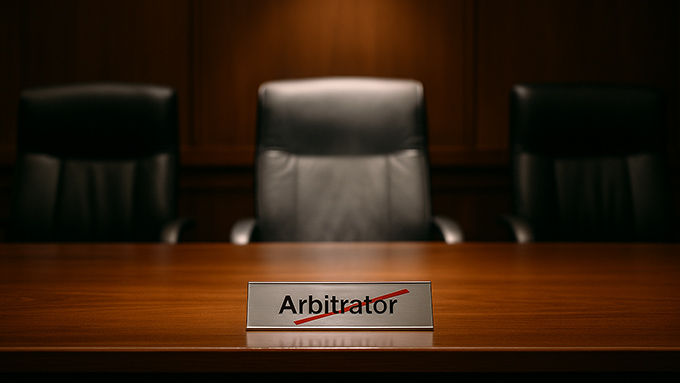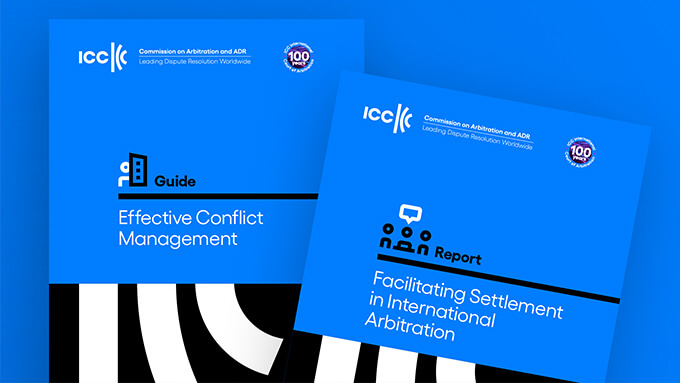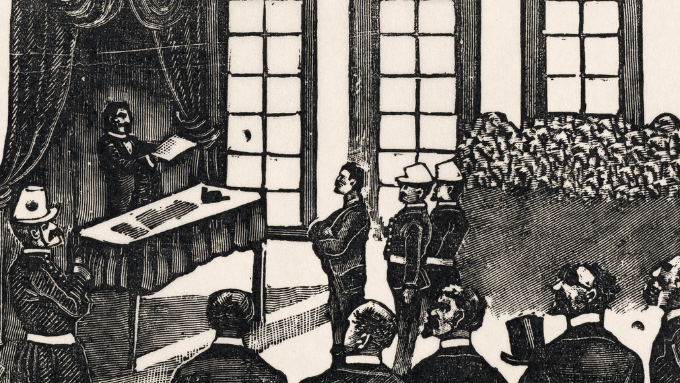ICSID Sets New Ethical Standards for Adjudicators
Introduction
On May 1, 2020, International Centre for Settlement of Investment Disputes (“ICSID”) and the United Nations Commission on International Trade Law (“UNCITRAL”) published the first draft of Code of Conduct for Adjudicators in Investor-State Dispute Settlement (ISDS) (“Code” or “Code of Conduct”). The draft Code addresses certain policy issues in response to the criticism raised for adjudicators’ conduct, independence and impartiality as well as their availability.
General Review
The draft Code of Conduct consists of 12 articles. Each article is coupled with a commentary which explains the reasoning behind these provisions in detail and even propose some wordings in square brackets.
Article 1 defines basic terms including adjudicators which means all arbitrators, members of international ad hoc, annulment or appeal committees, and judges on a permanent mechanism for the settlement of investor-state disputes. Article 2 determines the scope of application of the Code and sets out adjudicators’ obligations and duties such as; independence, impartiality, conflict of interest, bias, integrity, fairness, competence, availability, diligence, efficiency, and confidentiality. Articles 4 to 9 discuss these duties and responsibilities in further detail and try to ease the concerns raised by arbitration society with regards to adjudicators’ behaviors. Articles 10 and 11 burden the adjudicators with the duty to keep accurate and documented record of the time devoted to the procedure and their expenses. Finally, Article 12 addresses the inevitable issue of enforcement of the Code of Conduct.
Notable Provisions
The draft Code of Conduct provides innovative provisions and propose solutions to some of the long standing issues, adjudicators’ disclosure obligations in particular, which will be discussed more thoroughly below.
Disclosure of Third-Party Funding (Article 5(2)(iv))
The Draft Code proposes a new rule on disclosing the existence of any third-party funder either on registration of the request for arbitration, or immediately upon the conclusion of a funding agreement. While the adjudicators are not obliged to disclose the terms and conditions of the funding agreement, the arbitrators may order disclosure of further information regarding the funding arrangement if it deems necessary at any stage of the proceeding.
Disclosure of Issue Conflict (Article 5(2)(d))
Issue conflict may become a concern if an adjudicator has taken a position on a legal matter relevant to the case, or has prior factual knowledge relevant to the dispute at hand. Even though the adjudicators are also expected to have expertise in a certain subject, academic writing or other public statements as well as past decisions may raise doubts about certain biases or prejudgment of certain issues. That being said, challenging arbitrators based on an alleged issue conflict remains rarely to be successful.
Pre-Appointment Interviews (Article 10(1))
The Code provides pre-appointment interviews for adjudicator candidates which ought to be limited to discussing availability, and potential conflicts of interest. Pre-appointment interviews should not be predicated upon jurisdictional, procedural or substantive matters that might be discussed during the proceedings.
Repeat Appointments (Article 5(2))
The draft Code does not provide for restrictions on repeat appointments but rather requires extensive disclosure. The concern in repeat appointments is that an adjudicator who is repeatedly appointed by the same counsel, client, or party develops a financial dependence, as well as a bias in favor of the appointing party. Repeat appointments do not only apply for arbitrators but also include experts, mediators, and conciliators. The draft Code determines a set of obligations for adjudicators to make all reasonable efforts to disclose (i) any significant relationship including professional and business relationships with the parties, their subsidiaries, their parent-companies or agencies, the parties’ counsel, adjudicators, experts or third-party funders within the past five years, (ii) any direct or indirect financial interest in the proceeding or its outcome, (iii) all ISDS and any other international arbitration proceedings in which the adjudicator has been involved as counsel, arbitrator, annulment committee member, or expert, and (iv) a list of all publications and relevant public speeches by the adjudicator.
Double-Hatting (Article 6)
One of the key issues in the draft Code is the regulations on double-hatting. Double hatting refers to the two hats worn by the adjudicator who acts as both counsel and arbitrator. The commentary section of the draft Code mentions that even though an outright ban is easier to implement, it would exclude a greater number of people than necessary who would have valuable contributions to solving the dispute at hand with their expertise. The Article proposes disclosure and recusal as solution to double-hatting. The Code provides that the disclosure or recusal may be considered when the adjudicator participated in a prior proceeding involving (i) the same parties, (ii) the same facts, or (iii) the same treaty. The Code also imposes certain duties to the adjudicators such as, they should ensure their availability to hear the case before accepting any appointment and once appointed, they should refuse competing obligations. The draft also suggests the possibility of limiting the number of investor-state cases that an arbitrator can handle at once to ensure the adjudicators investing enough time to hear the dispute at hand.
Conclusion
Once the Code of Conduct is finalized, it could guide all of the relevant parties to the investment arbitration as “soft law,” or could be incorporated into investment treaties, procedural rules or other instruments of consent and become binding. Either way it is an important and promising step towards a better functioning investment arbitration practice.
All rights of this article are reserved. This article may not be used, reproduced, copied, published, distributed, or otherwise disseminated without quotation or Erdem & Erdem Law Firm's written consent. Any content created without citing the resource or Erdem & Erdem Law Firm’s written consent is regularly tracked, and legal action will be taken in case of violation.
Other Contents

Emergency arbitration addresses the need for interim protection before the arbitral tribunal is constituted in institutional arbitrations. Arbitral institutions establish short timeframes to ensure parties can obtain interim relief quickly. For example, the International Chamber of Commerce (“ICC”) requires that the emergency...

International arbitration remains the preferred mechanism for resolving complex cross-border disputes. Yet despite its advantages—neutrality, enforceability, flexibility—arbitration is frequently criticized for being too slow, too expensive, and too procedurally heavy. Often, parties proceed through hearings and...

For arbitral awards rendered in international commercial arbitration to produce legal effects in foreign jurisdictions, they must be subjected to proceedings for “recognition” and “enforcement.” This process is governed by the New York Convention as well as by the provisions of the Law on Private International Law...

Arbitrability, the determination of whether a specific subject matter can be resolved through arbitration, constitutes a fundamental aspect of arbitration within the scope of international commercial dispute resolution. This concept draws a delicate balance between party autonomy—a fundamental principle of arbitration...

The recognition, enforcement, and annulment of foreign court and arbitral awards in Türkiye are processes in which public policy emerges as one of the most critical criteria for review, both in theory and in practice. The Court of Cassation decisions determine the direction of case law regarding the scope and...

As is well known, the action for annulment of objection is a special type of lawsuit regulated under Article 67 of the Turkish Execution and Bankruptcy Law No. 2004 (“EBL”). The primary objective of this action is to nullify a debtor’s objection to execution proceedings. Despite its procedural function of facilitating...

On 16 December 2024, the London Court of International Arbitration (“LCIA”) released its third batch of challenge decisions covering the period from 22 July 2017 to 31 December 2022. The LCIA has also issued a detailed commentary that identifies key legal themes and analytical trends, offering practitioners...

The International Chamber of Commerce (“ICC”) has published its report on the dispute resolution statistics for 2023 (“Report”) , shedding light on the evolving landscape of international arbitration...

Syndicated loans undoubtedly hold a significant position among global financing models. In 2023 alone, 3,655 syndicated loans were provided to companies in the US, with their total value reaching USD 2.4 trillion...

Preliminary attachment refers to the temporary seizure of a debtor's assets to secure a creditor's claim. While it serves as a vital instrument for safeguarding the rights of creditors, it is subject to specific and stringent conditions under Turkish law to prevent any potential misuse...

One of the most important reasons for parties to choose arbitration is the opportunity to freely choose their arbitrators. This freedom granted to the parties also distinguishes arbitration from proceedings before state courts, where the parties are deprived of the power to determine the judges who will conduct the...

The 6th Civil Chamber of the Court of Cassation ruled on October 12, 2022, that national courts have jurisdiction over objections to provisional measures in international arbitration disputes...

The declaration of intent to resolve disputes through arbitration is the fundamental constituent element of an arbitration agreement. To speak of a valid arbitration agreement, the parties' intention to arbitrate must emerge in a way that leaves no room for dispute...

In the wake of the evolving dynamics of commercial transactions, the Netherlands Arbitration Institute Foundation (NAI) announced new arbitration rules . 2024 NAI Arbitration Rules are in force as of 1 March 2024 and will be applicable on proceedings filed on or after this date...

With the global shift to online activities, domain names play a crucial role in identifying businesses. It is more common than ever for a domain name to be registered that is confusingly similar to a trademark or service mark...

The ICC Commission on Arbitration and ADR (“Commission”) published a new guide and report with the aim to increase awareness on alternative dispute resolution (“ADR”) mechanisms to prevent disputes and strengthen the relationship between all stakeholders.The Guide on Effective Conflict Management...

Mergers and Acquisitions (“M&A”) are restructuring of companies or assets through various types of financial transactions, such as mergers, acquisitions, purchase of assets, or management acquisitions. This Newsletter article covers M&A disputes being solved before arbitral tribunals.

In the context of arbitration practice, the principle of revision au fond means that the courts can not examine the merits of a dispute when reviewing an arbitral award. This principle is most commonly encountered in set aside and enforcement proceedings. An arbitral award is evidence of the parties’ willingness...

Under Turkish law, parties may agree on the settlement of disputes that have arisen or may arise, regarding the rights that they can freely dispose of, by arbitration. However, disputes which are not subject to the will of parties, such as the disputes relating to in rem rights of immovables, bankruptcy law...

On 4 September 2020, a research project “Does a Right to a Physical Hearing Exist in International Arbitration?” was launched by an International Council for Commercial Arbitration (“ICCA”) taskforce. Due to the Covid-19 pandemic, many arbitration hearings were held online. Many institutional rules...

Dubai International Arbitration Center amended its Arbitration Rules on 25 February 2022. The 2022 Arbitration Rules were published on 2 March 2022 and came into effect on 21 March 2022. The Rules will be applied to arbitrations that are filed after 21 March 2022; unless parties agree otherwise...

In the aftermath of the Achmea decision, controversies on intra-EU arbitrations continue. Most recently, the Paris Court of Appeal has annulled two arbitral awards rendered against Poland. Meanwhile, the Higher Regional Court of Berlin has refused to declare that an Irish investor’s ICSID claim...


Under Turkish law, the legal remedy that can be applied against arbitral awards is an annulment action. Law on International Arbitration No. 4686 (“IAL”) finds its application area in arbitration proceedings where Turkey is the place of arbitration...

It is well known that following a decision of the Court of Justice of the European Union, problems arose related to arbitration of intra-EU disputes, and particularly arbitration under the Energy Charter Treaty...

Arbitration in corporate law contains controversial elements in many respects, especially the issue of arbitrability. Even in legal systems where these disputes are considered to be arbitrable, uncertainties remain on whether an arbitration clause can be included in the articles of...





Arbitration has benifited from a great increase in the use of technology which has directly effected the conduct of proceedings. More particularly, with digitalization, the way that we conduct arbitration proceedings has been changed to reflect the current needs of parties, with an aim of increasing time...
































































